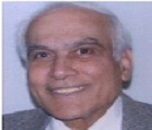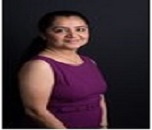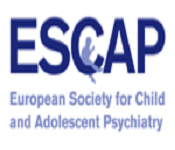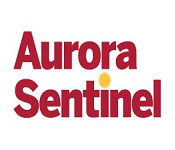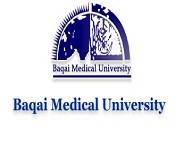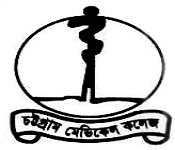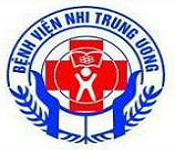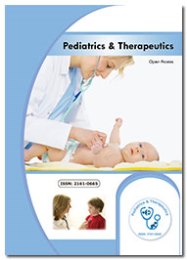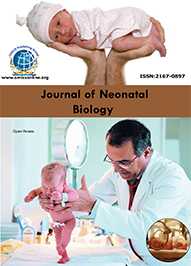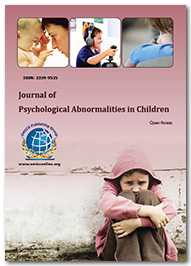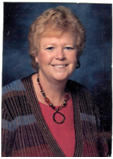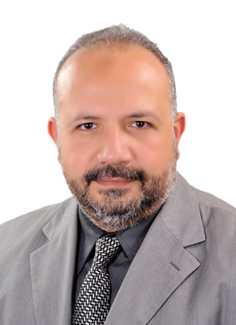Theme: New emerging trends and research strategies to cure pediatric diseases
Pediatrics 2016
OMICS International Conferences invites all the participants from all over the world to attend '4th International Conference on Pediatrics' during 29-31, 2016 in Atlanta, USA which includes prompt keynote presentations, Oral talks, Poster presentations and Exhibitions.
Pediatrics 2016 is a global platform to discuss and learn about Pediatrics and their health, Neonatal Intensive Care, Pediatric Immunology, Pediatric Infectious Diseases, Pediatric Oncology, Pediatric Hematology, Pediatric Allergy, Pediatric Pulmonology, Pediatric Cardiology, Pediatric Neurology, Pediatric Endocrinology, Pediatric Gastroenterology, Pediatric Urology, Pediatric Psychology, Pediatric Surgery and Pediatric Emergencies.
Track 1: General Pediatrics
The aim of the study of pediatrics is to reduce infant and child rate of deaths, control the spread of infectious disease, promote healthy lifestyles for a long disease-free life and help ease the problems of children and adolescents. It can be acknowledged that this can be reached by learning the major and primary subject on General Pediatrics. General Pediatrics includes the basic treatments involved for the betterment of pediatric health. The most significant problems can be due to nutritional deficiencies to the overall health of infants and children because growth and development can be seriously hindered by shortages in essential vitamins or nutrients.
A child has medical problems that might be genetic which can be learnt under general pediatrics. When a child has medical problems involving more than one body system, screening of genetic abnormalities may be recommended to identify the cause and make a diagnosis. This can be recognized by being educated about the modern imaging risks in children suffering with pediatric genetic disorders. During the course of these techniques providing effective pain management for children is widely recognized as a complicated and challenging aspect. This challenge can be achieved by learning about child psychology and behavioral studies which can ease the complications with the child during the treatment.
Related Conferences:
Track 2: Neonatal Intensive Care
Premature birth complications can vary between premature babies and some are more serious than others. Preterm birth complications are the leading cause of death among children under 5 years of age, responsible for nearly 1 million deaths in 2013. Neonatal resuscitation skills are essential for all health care providers who are involved in the delivery of newborns. Clinicians must use the latest non-pharmacologic and pharmacologic therapies for effective management of neonatal pain, distress, or agitation to avoid neonatal complications. As a child is growing it is important to concentrate on health care transition planning. Nutrients and growth factors regulate brain development during fetal and early postnatal life. Hence it is important to know the neonatal nutrition. Kernicterus (Bilirubin encephalopathy) is an acquired metabolic encephalopathy of the neonatal period is one of the toxic influences. Neonatal Polycythemia, defined as a central venous hematocrit (Hct) level of greater than 65%, is a relatively common disorder in neonates.
Related Conferences: Pediatrics Conferences September 14-16, 2016 Amsterdam, The Netherlands; Pediatric Surgery Conferences September 14-16, 2016 Amsterdam, Netherlands; Pediatric Dermatology Conferences October 10-11, 2016 Manchester, UK; Neonatology Conferences November 14-16, 2016 Valencia, Spain; Neonatal Conferences November 14-16, 2016 Valencia, Spain; Pediatric Neurology Conference November 14-16, 2016 Valencia, Spain; The 2nd International Neonatology Association Conference July 15-17 2016, Austria; 43rd Annual Meeting of the Society for Neonatology and Pediatric Intensive Care June 08-10 2017, Germany; NEO: The Conference for Neonatology February 25-28 2016, USA; Council of International Neonatal Nurses Conference August 14 - 17 2016, Canada.
Track 3: Pediatric Immunology
Pediatric immunology is a branch of pediatrics which deals with immunological or allergic disorders of children. Pediatric immunology plays major role in understanding the cellular and molecular mechanisms underlying the immune system and it has seriously involved in the development of new diagnostic tests and treatment. Some of the major pediatric immunology diseases are community acquired infections, vaccination & complications, pediatric HIV and AIDS and congenital or acquired immune deficiencies. As of 2013, of the estimated 35.3 million people worldwide living with HIV, approximately 3.2 million are children under 15 years of age. An estimated 260,000 children were newly infected with HIV in 2012; further, nearly 700 children are newly infected with HIV every day. Reflecting this imperative, it is equally important to learn about the diagnosing and caring of pediatric HIV patients.
Related Conferences: Pediatrics Conferences September 14-16, 2016 Amsterdam, The Netherlands; Pediatric Surgery Conferences September 14-16, 2016 Amsterdam, Netherlands; Pediatric Dermatology Conferences October 10-11, 2016 Manchester, UK; Neonatology Conferences November 14-16, 2016 Valencia, Spain; Neonatal Conferences November 14-16, 2016 Valencia, Spain; Pediatric Neurology Conference November 14-16, 2016 Valencia, Spain; 90th Annual Meeting of the Canadian Pediatric Society Jun 22-25 2016 Canada; 28th International Pediatric Association Congress of Pediatrics Aug 17-22 2016, Canada; 2016 American Academy of Pediatrics National Conference & Exhibition October 22-25 2016, USA; 15th Asian Pacific Congress of Pediatrics January 21-24 2016, India; 6th Congress of the European Academy of Pediatric Societies October 21-25 2016, Switzerland.
Track 4: Pediatric Infectious Diseases
Pediatric infectious diseases are the diseases which will effect at time of childhood. Some of the pediatric infectious diseases include bone infections, skin infections, joint infections, blood infections. The major causes for pediatric infectious diseases are the parasitic infection, bacterial infection and viral infections.
Related Conferences: Pediatrics Conferences September 14-16, 2016 Amsterdam, The Netherlands; Pediatric Surgery Conferences September 14-16, 2016 Amsterdam, Netherlands; Pediatric Dermatology Conferences October 10-11, 2016 Manchester, UK; Neonatology Conferences November 14-16, 2016 Valencia, Spain; Neonatal Conferences November 14-16, 2016 Valencia, Spain; Pediatric Neurology Conference November 14-16, 2016 Valencia, Spain; 34th Annual Meeting of the European Society for Pediatric Infectious Diseases May 10-14 2016, UK; The 15th Annual Pediatric Infectious Diseases Research Conference March 4-5 2016, USA; 8th Asian Congress of Pediatric Infectious Diseases November 7-10 2016, Thailand; 2016 Pediatric Infectious Disease Conference February 10-13 2016, USA
Track 5: Pediatric Oncology
It can be frightening to hear that a child has cancer or a blood disorder. It is acknowledged that neuroblastoma is the most common extracranial solid tumor of infancy. It is an embryonal malignancy of the sympathetic nervous system arising from neuroblasts (pluripotent sympathetic cells). Researchers are looking for genetic source of childhood cancer. The common blood disorders in children are leukemia and lymphoma. Leukemia is a disease of the white blood cells. The most common type of pediatric leukemia is acute lymphocytic leukemia. Other types of leukemia that occur less frequently in children are acute myeloid leukemia, and chronic myeloid leukemia. Lymphomas (Hodgkin and non-Hodgkin lymphoma) are the third most common cancer in children. Based on the characteristics and microscopic appearance of the cancer cell, the pediatric lymphomas are divided into Hodgkin Lymphoma and non-Hodgkin lymphoma. Hence learning more about the advances in cancer detection and images becomes a prominent subject to cure childhood cancer.
Related Conferences: Pediatrics Conferences September 14-16, 2016 Amsterdam, The Netherlands; Pediatric Surgery Conferences September 14-16, 2016 Amsterdam, Netherlands; Pediatric Dermatology Conferences October 10-11, 2016 Manchester, UK; Neonatology Conferences November 14-16, 2016 Valencia, Spain; Neonatal Conferences November 14-16, 2016 Valencia, Spain; Pediatric Neurology Conference November 14-16, 2016 Valencia, Spain; SIOPE 4th Paediatric Oncology Conference January 20–21 2016, Belgium; 40th Annual Association of Pediatric Oncology Social Work Conference April 13-15 2016, Rhode Island; 90th Annual Meeting of the Canadian Pediatric Society Jun 22-25 2016 Canada; 28th International Pediatric Association Congress of Pediatrics Aug 17-22 2016, Canada; 2016 American Academy of Pediatrics National Conference & Exhibition October 22-25 2016, USA
Track 6: Pediatric Hematology
Pediatric hematology is the branch of pediatrics dealing with study, diagnosis, treatment and prevention different types of blood disorders including the study of bleeding and clotting disorders in children. The study of Tumor Cell Biology reviews applications concerned with signal transduction mechanisms in neoplastic cells, and regulation of tumor cell phenotype and behavior, and tumor progression. It important to study causes, risk factors and the hypothesis in pediatrics with hematology disorders. A medical practitioner who specializes in this field of pediatric hematology is called pediatric hematologist. It is important that one should be familiar with the educational and preventive measures in order to prevent children being affected with blood disorders.
Related Conferences: 4Pediatrics Conferences September 14-16, 2016 Amsterdam, The Netherlands; Pediatric Surgery Conferences September 14-16, 2016 Amsterdam, Netherlands; Pediatric Dermatology Conferences October 10-11, 2016 Manchester, UK; Neonatology Conferences November 14-16, 2016 Valencia, Spain; Neonatal Conferences November 14-16, 2016 Valencia, Spain; Pediatric Neurology Conference November 14-16, 2016 Valencia, Spain; 6th International Conference On Hematology & Lymph November 14-16 2016, USA; 15th International Paediatric Haematology & Oncology Update Meeting May 12- 13 2016, UK; Association of Pediatric Hematology/Oncology Nurses 40th Annual Conference And Exhibit September 29-October 01 2016, Indiana; 34th Annual Meeting Of The Nordic Society For Pediatric Hematology And Oncology May 27-31 2016, Iceland.
Track 7: Pediatric Allergy
Pediatric Allergy is an important subject to be learnt in order to promote understanding and advance the treatment of respiratory, allergic, and immunologic diseases in children. It emphasizes the epidemiologic research on the most common chronic illnesses of children—asthma and allergies—as well as many less common and rare diseases. Swollen or enlarged adenoids and Tonsils are common in children. Environmental and food allergies in children occur when the children’s immune system reacts to normal harmless substances present in the environment. Pneumonia is often caused by viruses, such as the influenza virus (flu) and adenovirus. Other viruses, such as respiratory syncytial virus (RSV) and human metapneumovirus, are common causes of pneumonia in young kids and babies. Some of the Allergic reactions in children include, red eyes, atopic dermatitis (eczema), itchiness, runny nose, , urticaria (hives), an asthma attack and sinusitis.
Related Conferences: 4Pediatrics Conferences September 14-16, 2016 Amsterdam, The Netherlands; Pediatric Surgery Conferences September 14-16, 2016 Amsterdam, Netherlands; Pediatric Dermatology Conferences October 10-11, 2016 Manchester, UK; Neonatology Conferences November 14-16, 2016 Valencia, Spain; Neonatal Conferences November 14-16, 2016 Valencia, Spain; Pediatric Neurology Conference November 14-16, 2016 Valencia, Spain; International Allergy Conference March 29-30 2016, Spain; 18th International Conference on Allergy, Asthma and Immunology June 1 - 2 2016, UAE.
Track 8: Pediatric Pulmonology
Pediatric pulmonology is a medical specialty that deals with diagnosis and treatment of diseases involving respiratory tract. Pediatric pulmonology is a combination of both pulmonology and pediatrics. Pediatric pulmonologists are specially trained in pulmonary pediatric diseases and conditions of the chest, particularly pneumonia, asthma, tuberculosis, complicated chest infections, etc. Epiglottitis is a cause of pediatric dyspnea that should be considered by the EMT when evaluating children in respiratory distress. Hence it is important to study the diagnosis, immunization and preventive measure of these diseases.
Related Conferences: Pediatrics Conferences September 14-16, 2016 Amsterdam, The Netherlands; Pediatric Surgery Conferences September 14-16, 2016 Amsterdam, Netherlands; Pediatric Dermatology Conferences October 10-11, 2016 Manchester, UK; Neonatology Conferences November 14-16, 2016 Valencia, Spain; Neonatal Conferences November 14-16, 2016 Valencia, Spain; Pediatric Neurology Conference November 14-16, 2016 Valencia, Spain; 15th International Congress on Pediatric Pulmonology June 23-26 2016, Italy; 28th International Pediatric Association Congress of Pediatrics Aug 17-22 2016, Canada; 2016 American Academy of Pediatrics National Conference & Exhibition October 22-25 2016, USA; 15th Asian Pacific Congress of Pediatrics January 21-24 2016, India; 6th Congress of the European Academy of Pediatric Societies October 21-25 2016, Switzerland.
Track 9: Pediatric Cardiology
The study of Pediatric Cardiology is responsible for the diagnosis of congenital heart defects, performing diagnostic procedures such as echocardiograms, cardiac catheterizations and electrophysiology studies. The increasing number of neonates with congenital heart defects referred to the neonatal intensive care unit reflects the increasing awareness that the defects may be present. Chest radiography and ECG rarely assist in the neonatal diagnosis. Congestive heart failure in the fetus, or hydrops, can be detected by performing fetal echocardiography. In this case, congestive heart failure may represent underlying anemia (eg, Rh sensitization, fetal-maternal transfusion), arrhythmias (usually supraventricular tachycardia), or myocardial dysfunction (myocarditis or cardiomyopathy). Many of the pediatric heart defects such as patent ductus arteriosus interruption, vascular ring division, pericardial window, diaphragm placation, thoracic duct ligation, ligation of collateral vessels have been repaired using pediatric interventional cardiology. The barriers and challenges to achieving routinely applicable Tissue Engineered and Regenerative Cardiac Surgery Methods are also explored as is a novel concept for the Cardiac Hybrid Operating Room Suite of the 21st Century. Apart from these techniques nursing and care for pediatric cardiac patients also plays an important role for the cure of pediatric cardiac patients.
Related conferences: Pediatrics Conferences September 14-16, 2016 Amsterdam, The Netherlands; Pediatric Surgery Conferences September 14-16, 2016 Amsterdam, Netherlands; Pediatric Dermatology Conferences October 10-11, 2016 Manchester, UK; Neonatology Conferences November 14-16, 2016 Valencia, Spain; Neonatal Conferences November 14-16, 2016 Valencia, Spain; Pediatric Neurology Conference November 14-16, 2016 Valencia, Spain; 19th Annual Update on Pediatric and Congenital Cardiovascular Disease Feb 24-28 2016, USA; 50th Annual Meeting of the Association for European Paediatric and Congenital Cardiology June 1-4 2016, Rome; 18th International Conference on Pediatric Cardiology January 26 - 27 2016, Saudi Arabia; 7th World Congress of Pediatric Cardiology & Cardiac Surgery June 18-23 2017, Turkey.
Track 10: Pediatric Neurology
Researchers are engaged in a variety of laboratory and clinical research programs to extend their understanding of the developing nervous system and pathologic processes that underlie neurological disorders in children. The most common neurological disease is pediatric epilepsy. Approximately 70% of children who suffer epilepsy during their childhood eventually outgrow it. Magnetic resonance spectroscopy (MRS) is a diagnostic tool used for inherited metabolic disorders. To date, MRS has been limited to the assessment for cerebral lactic acidosis in mitochondrial disorders in children. Neuromuscular and genetic metabolic diseases are the most common genetic related disorders in children. The new frontier to improve outcomes in crticially ill pediatric patients with neurological illness is Pediatric Neurocritical Care.
Related Conferences: Pediatrics Conferences September 14-16, 2016 Amsterdam, The Netherlands; Pediatric Surgery Conferences September 14-16, 2016 Amsterdam, Netherlands; Pediatric Dermatology Conferences October 10-11, 2016 Manchester, UK; Neonatology Conferences November 14-16, 2016 Valencia, Spain; Neonatal Conferences November 14-16, 2016 Valencia, Spain; Pediatric Neurology Conference November 14-16, 2016 Valencia, Spain; 6th Global Neurologists Annual Meeting on Neurology and Neuro Surgery August 01-03 2016, Germany; 14th International Child Neurology Congress May 1-5 2016, The Netherlands; Child Neurology Society 45th Annual Meeting October 26-29 2016, Canada; British Paediatric Neurology Association Annual Conference January 27-29 2016, UK; 3rd Pan-Slavic Congress of Child Neurology October 19-22 2016, Croatia; International Conference Of Pediatric Neurology of Egyptian Specialized Society of pediatric Neurology And Neurodisability March 2-3 2016, Egypt
Track 11: Pediatric Endocrinology
Pediatric Endocrinology is a medical subspecialty dealing growth disorders and sexual differentiation in childhood, as well as neonatal diabetes and other disorders of the endocrine glands. It also includes the study of the most common types of diabetes are type 1 and type 2 diabetes. There is another type of diabetes that is often misdiagnosed as type 1 or type 2 diabetes, called monogenic diabetes which is seen in children.
Related Conferences: Pediatrics Conferences September 14-16, 2016 Amsterdam, The Netherlands; Pediatric Surgery Conferences September 14-16, 2016 Amsterdam, Netherlands; Pediatric Dermatology Conferences October 10-11, 2016 Manchester, UK; Neonatology Conferences November 14-16, 2016 Valencia, Spain; Neonatal Conferences November 14-16, 2016 Valencia, Spain; Pediatric Neurology Conference November 14-16, 2016 Valencia, Spain; 4th Euro Obesity & Endocrinology Specialists Annual Meeting March 29-31 2016, Spain; Pediatric Endocrine Nursing Society (PENS) Meeting May 12-15 2016, USA; 10th International Meeting of Pediatric Endocrinology September 14-17 2017, USA; Pediatric Endocrine Society Annual Meeting April 30–May 3 2016, USA; 55th Annual Meeting of the European Society for Paediatric Endocrinology September 10–12 2016, France; 9th Asia Pacific Pediatric Endocrine Society Scientific Meeting November 17-20 2016, Japan.
Track 12: Pediatric Gastroenterology
Gastrointestinal disorders in children range from minor to life threatening, and short- to long-term or chronic. Neonatal Jaundice is one of the most common conditions needing medical attention in newborn babies. Gastrointestinal food allergies are not rare in infants and children. Gastrointestinal (GI) endoscopic procedure a pediatric endoscopy has become an essential modality for evaluation and treatment of GI diseases. Complex gastrointestinal surgery is one of the common methods to treat GI disorder in children. The principle diseases concerned with pediatric gastroenterology are acute diarrhoea, gastritis, persistent vomiting and problems with the development of the gastric tract.
Related Conferences: 4Pediatrics Conferences September 14-16, 2016 Amsterdam, The Netherlands; Pediatric Surgery Conferences September 14-16, 2016 Amsterdam, Netherlands; Pediatric Dermatology Conferences October 10-11, 2016 Manchester, UK; Neonatology Conferences November 14-16, 2016 Valencia, Spain; Neonatal Conferences November 14-16, 2016 Valencia, Spain; Pediatric Neurology Conference November 14-16, 2016 Valencia, Spain; European Gastroenterology Conference October 24-26 2016, Spain; 90th Annual Meeting of the Canadian Pediatric Society Jun 22-25 2016 Canada; 28th International Pediatric Association Congress of Pediatrics Aug 17-22 2016, Canada; 2016 American Academy of Pediatrics National Conference & Exhibition October 22-25 2016, USA; 15th Asian Pacific Congress of Pediatrics January 21-24 2016, India; 6th Congress of the European Academy of Pediatric Societies October 21-25 2016, Switzerland.
Track 13: Pediatric Psychology
Nearly every child or teen faces some challenges as they grow up because of peer pressure, family changes, a death or other loss, managing a chronic illness, or simply because it isn’t easy making the change from being a child to being an adult. Poor mental health can affect overall well-being and can lead to emotional and behavioral changes, ADHD and learning disabilities. Many children experience loss or stress, and others must manage their chronic illness at a young age. Some children have a disorder that runs in the family and puts them at higher risk for depression or anxiety. Some children may also be affected due to school problems and relationship problems and leads to behavioral and developmental disorders. If a child or teen shows extreme anxiety, depression, problems with nightmares and sleeping, aggressive behaviors or if he talks of suicide, seek immediate cognitive behavioral therapies
Related Conferences: 4Pediatrics Conferences September 14-16, 2016 Amsterdam, The Netherlands; Pediatric Surgery Conferences September 14-16, 2016 Amsterdam, Netherlands; Pediatric Dermatology Conferences October 10-11, 2016 Manchester, UK; Neonatology Conferences November 14-16, 2016 Valencia, Spain; Neonatal Conferences November 14-16, 2016 Valencia, Spain; Pediatric Neurology Conference November 14-16, 2016 Valencia, Spain; 63rd Annual Meeting of the American Academy of Child and Adolescent Psychiatry October 24-29 2016, New York; Society of Pediatric Psychology Annual Conference April 14-16 2016, USA; 60th Congress of Spain’s Child and Adolescent Psychiatry Association June 1-4, Spain; 22nd International Association for Child & Adolescent Psychiatry and Allied Professions World Congress September 18-22 2016, Calgary; 17th International Congress of European Society for Child and Adolescent Psychiatry July 8-12 2017, Geneva.
Track 14: Pediatric Surgery
Pediatric surgery is a branch of pediatrics which is dealing with all the surgical operations of children. It is a combination of both surgery and pediatrics. Pediatric surgery is responsible for the treatment of many disorders through surgical operations in children and playing vital role in saving lives at birth stage by newborn and fetal surgery. Pediatric surgery can be mainly divided into two sub categories, known as, pediatric cardiothoracic surgery, pediatric surgical oncology, pediatric nephrological surgery, pediatric neurosurgery, pediatric urological surgery, pediatric hepatological surgery, pediatric orthopedic surgery, pediatric vascular surgery and pediatric oncological surgery.
Related Conferences: Pediatrics Conferences September 14-16, 2016 Amsterdam, The Netherlands; Pediatric Surgery Conferences September 14-16, 2016 Amsterdam, Netherlands; Pediatric Dermatology Conferences October 10-11, 2016 Manchester, UK; Neonatology Conferences November 14-16, 2016 Valencia, Spain; Neonatal Conferences November 14-16, 2016 Valencia, Spain; Pediatric Neurology Conference November 14-16, 2016 Valencia, Spain; 90th Annual Meeting of the Canadian Pediatric Society Jun 22-25 2016 Canada; 28th International Pediatric Association Congress of Pediatrics Aug 17-22 2016, Canada; 2016 American Academy of Pediatrics National Conference & Exhibition October 22-25 2016, USA; 15th Asian Pacific Congress of Pediatrics January 21-24 2016, India; 6th Congress of the European Academy of Pediatric Societies October 21-25 2016, Switzerland.
Track 15: Pediatric Emergencies
Emergent management of pediatric patients with fever is a common challenge. Children with fever account for as many as 20% of pediatric emergency department (ED) visits, and the underlying disorders in these cases range from mild conditions to the most serious of bacterial and viral illnesses. Asphyxial cardiac arrest is more common than VF cardiac arrest in infants and children, and ventilations are extremely important in pediatric resuscitation. It occurs in circumstances that obstruct the airway or otherwise prevent the intake of oxygen. Many congenital and acquired heart diseases may present with heart failure. This requires immediate management of common cardiac emergencies in children beyond the neonatal period, illustrated with typical clinical scenarios, ECG recordings or X-ray/echocardiographic images. But it is important to learn about radiation consequences of CT in children. Because of the rapidly growing use of pediatric CT and the potential for increased radiation exposure to children undergoing these scans, special considerations should be applied when using pediatric CT.
Related Conferences: Pediatrics Conferences September 14-16, 2016 Amsterdam, The Netherlands; Pediatric Surgery Conferences September 14-16, 2016 Amsterdam, Netherlands; Pediatric Dermatology Conferences October 10-11, 2016 Manchester, UK; Neonatology Conferences November 14-16, 2016 Valencia, Spain; Neonatal Conferences November 14-16, 2016 Valencia, Spain; Pediatric Neurology Conference November 14-16, 2016 Valencia, Spain; Pediatric Emergency Medicine Emergent and Urgent Challenges Conference January 18-22 2016, USA; Pediatric Emergency Medicine An Evidence-Based Approach Conference February 15-19 2016 2016, USA; 27th Annual Winter Conference On Emergency Medicine 2016 March 16-19 2016, USD; Topics in Adult and Pediatric Emergency Medicine Western Caribbean December 3-10 2016, United States.
With the amalgamation of peerless speakers of Pediatrics-2015 OMICS International is privileged to announce its “4th International Conference on Pediatrics” which will be held during March 29-31, 2016 in Atlanta, USA. We cordially welcome all the eminent researchers, students and delegates to take part in this upcoming pediatric congress to witness invaluable scientific discussions and contribute to the future innovations in the field of Pediatrics.
Pediatrics-2016 conference will focus on the latest and exciting innovations in all areas of Pediatrics research which offers a unique opportunity for investigators across the globe to meet, network, and perceive new scientific innovations. This year’s annual congress highlights the theme, “New emerging trends and research strategies to cure pediatric diseases” which reflects the innovative progress in Pediatric disease research. The three days conference includes child health care workshops, symposiums, special keynote sessions conducted by eminent and renowned speakers who excel in the field of pediatrics which include the topics pediatric immunology, pediatric hematology and oncology, pediatric allergy, pediatric cardiology, pediatric neurology, pediatric psychology, pediatric emergencies and pediatric dentistry. This National Pediatric Conference also encourages the active participation of young student researchers as we are hosting Poster Award Competition and Young research Forum at the conference venue.
It is being acknowledged that in United States alone, more than 9,000 children die every year while more than 225,000 children are being hospitalized annually. Reports state that almost 9 million children are treated for their injuries in hospital emergency departments every year. The global pediatric healthcare market touches around $81.0 billion. Pediatric associations are being funded annually about $629,559 million to $669,841 million for pediatric research. Reflecting this imperative, OMICS Group believes that professionally-oriented education in pediatric medicine is essential in the training of clinicians and academicians and organizes Pediatric conference in Atlanta, USA this year which will provide the future leadership in this key area for global health. OMICS International organizes a conference series of 1000+ Global Events inclusive of 300+ Conferences, 500+ Upcoming and Previous Symposiums and Workshops in USA, Europe & Asia with support from 1000 more scientific societies and publishes 700+ Open access journals which contains over 30000 eminent personalities, reputed scientists as editorial board members.
Why to attend?
With members from around the world focused on learning about Pediatrics and its advances in making a better health; this is your best opportunity to reach the largest assemblage of participants from the Pediatrics community. Conduct presentations, distribute information, meet with current and potential scientists, make a splash with new drug developments, and receive name recognition at this 3-day event. World-renowned speakers, the most recent techniques, developments, and the newest updates in Pediatrics are hallmarks of this conference.
Target Audience:
· Pediatric Scientists
· Pediatric Researchers
· Pediatric Nurses
· Pediatric Associations and Societies
· Pediatric Faculty
· Medical Colleges
· Pediatric Physicians
· Data Management Companies
· Training Institutes
· Software developing companies
· Business Entrepreneurs
· Manufacturing Medical Devices Companies
About the Conference:
Pediatrics-2016 welcomes attendees, presenters, and exhibitors from all over the world to Atlanta, USA. We are delighted to invite you all to attend and register for the “4th International Conference on Pediatrics (Pediatrics-2016)” which is going to be held during March 29-31, 2016 in Atlanta, USA.
The organizing committee is gearing up for an exciting and informative conference program including plenary lectures, symposia, workshops on a variety of topics, poster presentations and various programs for participants from all over the world. We invite you to join us at the Pediatrics-2016, where you will be sure to have a meaningful experience with scholars from around the world. All members of the Pediatrics-2016 organizing committee look forward to meeting you in Atlanta, USA.
For more details please visit- http://pediatrics.conferenceseries.com/
Importance & Scope:
Global burden of pediatric mortality is increasing drastically every year. WHO estimates that 8.8 million deaths occur annually among infant and children < 5 years of age. 3.8 million in the first 30 days of life 36% of neonatal deaths due to infectious diseases. Nearly 9 million children under five die every year. Reflecting this imperative, we believe that professionally-oriented education in to cure pediatric diseases is essential in the training of clinicians and clinical academics who will provide the future leadership in this key area for global health. Pediatrics-2016 aims to bring together leading academic scientists, researchers and research scholars to exchange and share their experiences and research results about all aspects of Pediatrics. It also provides the chance for researchers, practitioners and educators to present and discuss the most recent innovations, trends, and concerns, practical challenges encountered and the solutions adopted in the fields of Pediatrics.
Pediatrics-2016 is an international platform for presenting research about diagnosis, prevention and management of pediatric diseases, exchanging ideas about it and thus, contributes to the dissemination of knowledge in pediatrics for the benefit of both the academia and business. This event brings together Pediatric surgeons, neonatologists, child specialists and all the eminent researchers and experts in the field of Pediatric medicine to explore the advancements in the prevention and management of pediatric diseases. We bring together industrial executives, Pediatric Pharma and Health care sectors making the conference a perfect platform to network, share views and knowledge through interactive discussions.
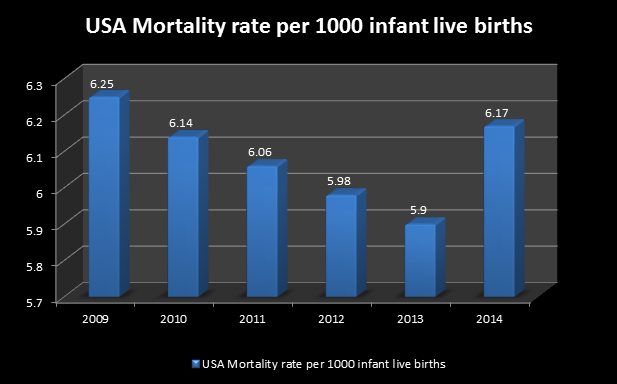
Why Atlanta?
It is being acknowledged that the leading cause for infants and children in Atlanta was birth defects; prematurity/low birth weight; sudden infant death syndrome; maternal complications of pregnancy and respiratory distress syndrome.
In Atlanta during 2008-2010 (average), 82 infants died before reaching their first birthday, an infant mortality rate of 6.2 per 1,000 live births. In Atlanta in 2006, the rate of perinatal mortality was 4.3 per 1,000 live births and fetal deaths which have reached to 7.0 per 1,000 infant births by the year 2013. Reflecting this imperative Pediatrics-2016 aims to educate pediatricians and achieve the goal of reducing infant mortality rate.
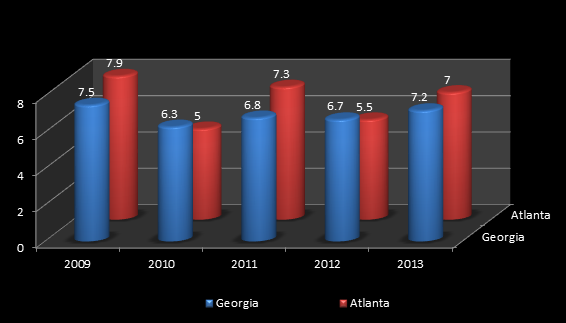
Member Associated with Pediatric Research:
Pediatric research includes a number of specialties like pediatric cardiology, pediatric allergy, pediatric dermatology, pediatric oncology, pediatric surgery and many more. Every pediatric specialty conducts research related to their respective topic to improve child health care. In Atlanta alone there are approximately around 577 pediatricians.
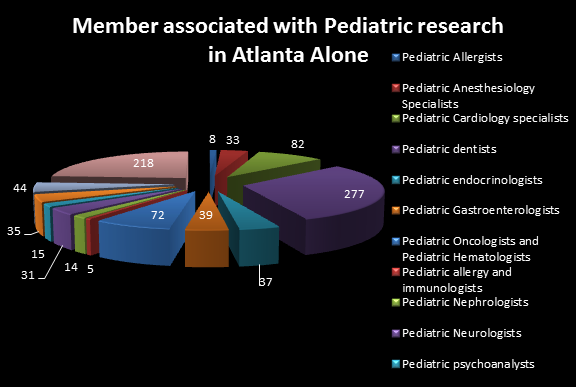
There are a number of general pediatricians across the globe and USA. As per the records it is being acknowledged that globally 7.62% are registered pediatricians with specific specialty. USA is said to be one of the top most countries having a large number of pediatricians.
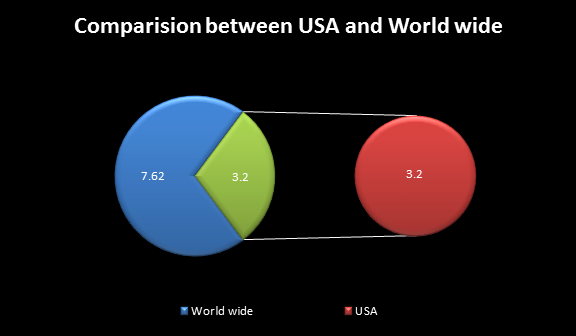
Hospitals Associated with Pediatric Research
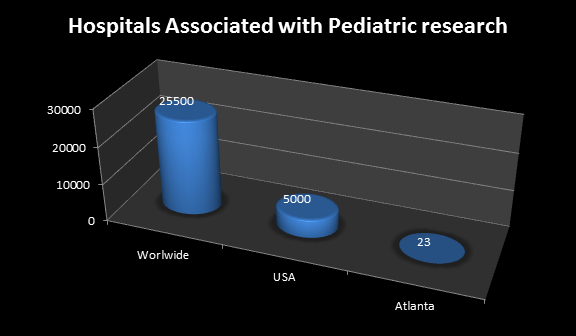
Societies Associated with Pediatric Research
Different pediatric associations in Atlanta, USA and across the globe are conducting research studies to improve the child health and decrease the infant mortality rate.

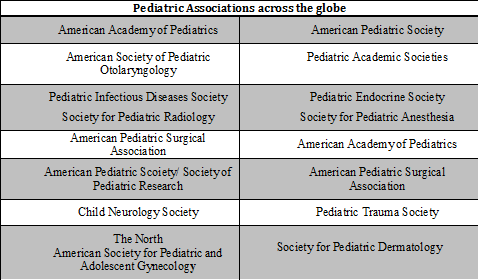
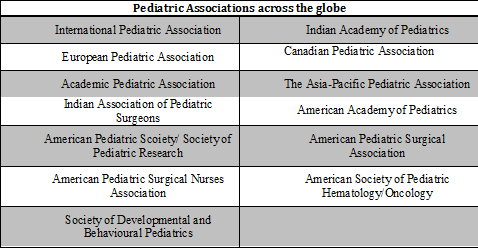
Universities Associated with Pediatric Research
In Atlanta, there are approximately about 52 Universities which include pediatric research. In USA alone there are 150 Universities and globally there are about 1350 universities which include pediatric research
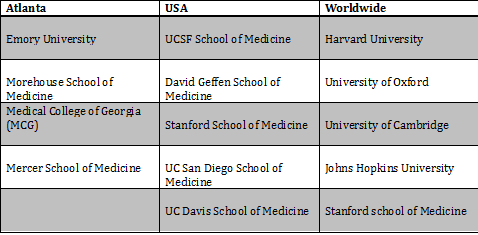
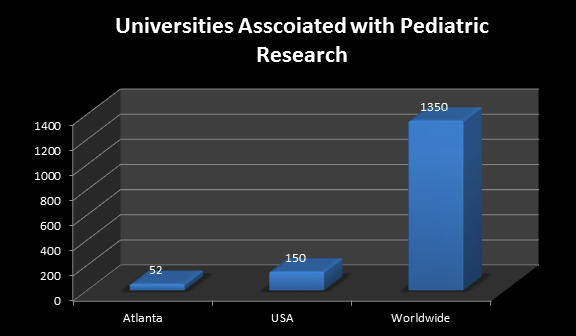
Market value on Pediatric Research:
It being acknowledged that the infant mortality rate is being increased due to various infectious diseases. According to the records in Atlanta the market value on pediatric research is $1145.515 million.
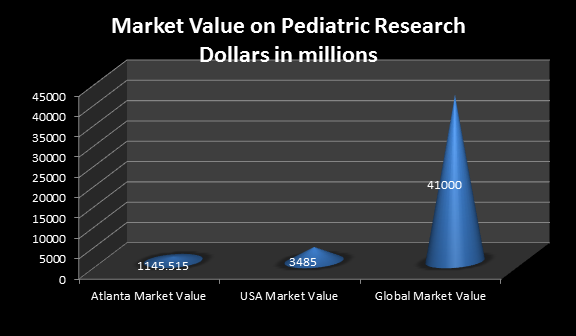
Market Growth of Pediatric Research in the last and upcoming ten years
As the number of infant deaths increasing the market growth on pediatric research is also increasing yearly. 2013-2015 it being acknowledged that the market value on pediatric research globally is $65 billion. The estimated market value in the future on pediatric research is $81 billion. 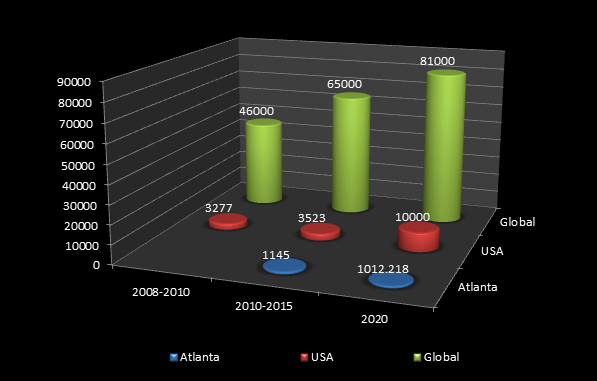
Products manufactured by the industry related Pediatrics Research and it’s market Value

Fund Allotment to Pediatric Research
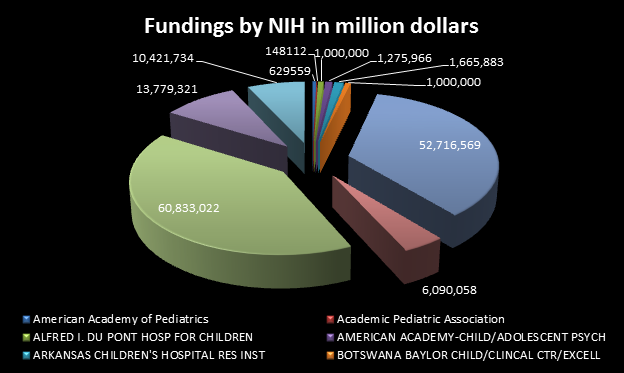
Conference Highlights
- General Pediatrics
- Neonatal Intensive Care
- Pediatric Immunology
- Pediatric Infectious Diseases
- Pediatric Oncology
- Pediatric Hematology
- Pediatric Allergy
- Pediatric Pulmonology
- Pediatric Cardiology
- Pediatric Neurology
- Pediatric Endocrinology
- Pediatric Gastroenterology
- Pediatric Psychology
- Pediatric Surgery
- Pediatric Emergencies
- Entrepreneurs Investment Meet
To share your views and research, please click here to register for the Conference.
To Collaborate Scientific Professionals around the World
| Conference Date | March 29-30,2016 | ||
| Sponsors & Exhibitors |
|
||
| Speaker Opportunity Closed | Day 1 | Day 2 | Day 3 |
| Poster Opportunity Closed | Click Here to View | ||
Useful Links
Special Issues
All accepted abstracts will be published in respective Our International Journals.
- Pediatrics & Therapeutics
- Journal of Neonatal Biology
- Journal of Psychological Abnormalities in Children
Abstracts will be provided with Digital Object Identifier by





